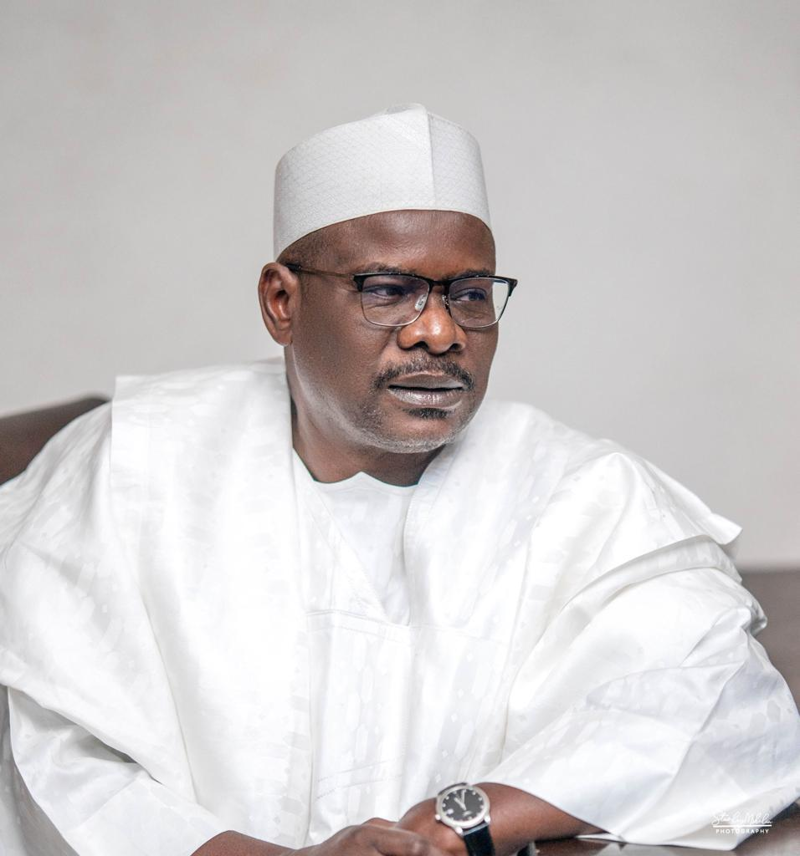In a significant political development, the All Progressives Congress (APC) has called for the reinstatement of Ali Ndume as the Senate Whip.
This move marks a crucial moment in the ongoing political dynamics within Nigeria’s legislative framework. The request for Ndume’s reinstatement highlights the intricate nature of party politics and the balancing act that often defines political maneuvering in the country.
Ali Ndume, a prominent Nigerian senator, was initially appointed as the Senate Whip in the National Assembly. His tenure was marked by notable contributions to legislative processes and an active role in party affairs. However, his removal from the position sparked controversy and debate within political circles and among the public.
The APC’s call for Ndume’s reinstatement is rooted in several factors. First and foremost, Ndume’s experience and political acumen are seen as assets that the party believes are crucial for navigating the complex legislative environment. As Senate Whip, Ndume was instrumental in ensuring party discipline and coherence among senators, which is vital for the effective functioning of the Senate.
READ ALSO:FG requests workers to register for N40,000 rice
The APC’s leadership has expressed concerns that Ndume’s removal could disrupt the party’s strategic objectives and legislative agenda. The party has emphasized the need for stability and continuity within the Senate to effectively address national issues and implement its policies. Reinstating Ndume is viewed as a step toward achieving this stability.
Another key factor in the call for Ndume’s reinstatement is his standing within the party. Ndume has been a loyal member of the APC and has played a significant role in its activities. The party’s leadership may see his reinstatement as a gesture of goodwill and recognition of his contributions. It also reflects the party’s commitment to maintaining a united front and ensuring that experienced members are given their due recognition and roles.
The political landscape in Nigeria is characterized by a complex interplay of alliances, interests, and power dynamics. The APC’s decision to call for Ndume’s reinstatement underscores the importance of managing these dynamics effectively. It also highlights the role of party leadership in shaping the direction and functioning of legislative bodies.
Ndume’s tenure as Senate Whip was marked by his efforts to foster collaboration and consensus among senators. He was known for his ability to navigate through differing opinions and build consensus on key legislative issues. His leadership style was seen as a factor in the efficient functioning of the Senate during his time in office.
The process of reinstating Ndume is likely to involve discussions and negotiations within the APC and among key stakeholders in the Senate. The party will need to address various considerations, including the reactions of other senators and the implications for its legislative agenda. Balancing these factors will be crucial in determining the outcome of the call for reinstatement.
The APC’s move also comes at a time when there are ongoing discussions about the effectiveness of the Senate and its role in the legislative process. The party’s decision to seek Ndume’s reinstatement may be seen as an attempt to address concerns about the Senate’s functioning and enhance its effectiveness in addressing national issues.
Public reaction to the call for Ndume’s reinstatement is likely to be mixed. Supporters of Ndume may view this as a positive development and a recognition of his contributions to the Senate. On the other hand, critics may question the motivations behind the move and its implications for the party’s internal dynamics.
Also, the APC’s call for Ali Ndume’s reinstatement as Senate Whip represents a significant development in Nigerian politics. It reflects the party’s recognition of Ndume’s contributions and the need for stability within the Senate.
The outcome of this call will depend on various factors, including internal party dynamics and the broader political context. As Nigeria continues to navigate its political landscape, the decisions made by parties and their leaders will play a crucial role in shaping the country’s legislative processes and governance.
